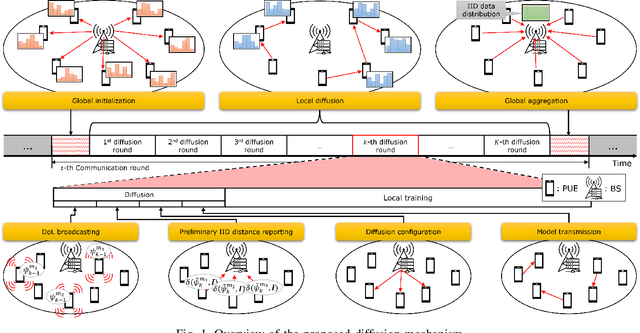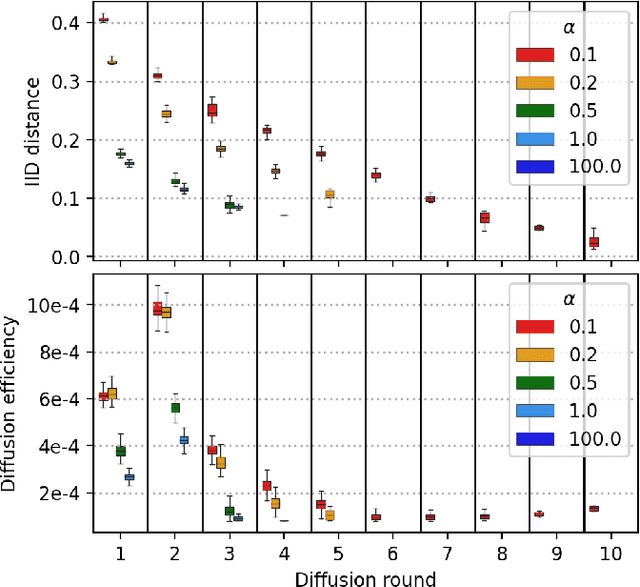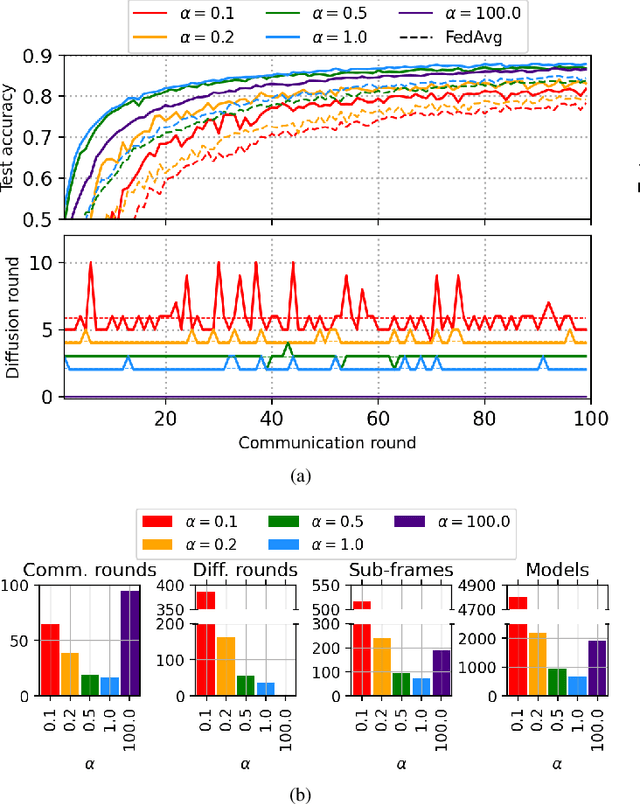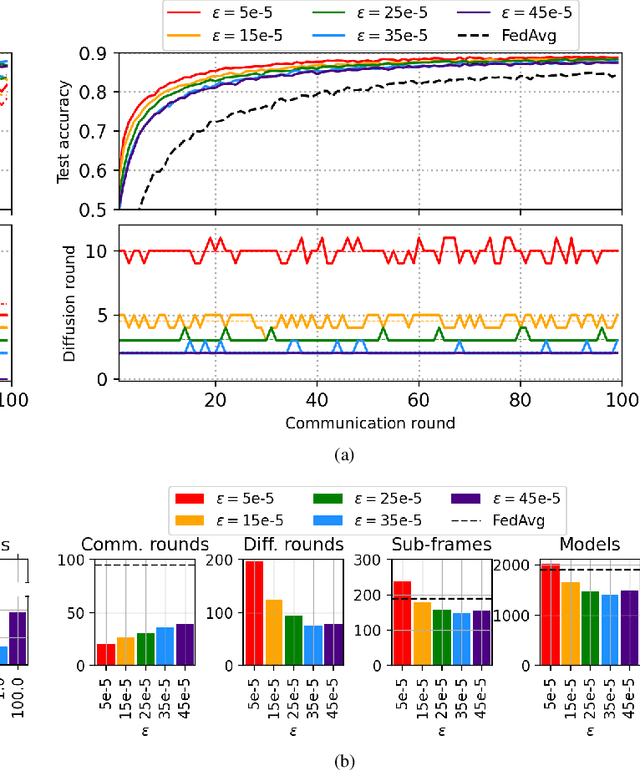Seyoung Ahn
On the Spatial-Wideband Effects in Millimeter-Wave Cell-Free Massive MIMO
Jul 06, 2023
Abstract:In this paper, we investigate the spatial-wideband effects in cell-free massive MIMO (CF-mMIMO) systems in mmWave bands. The utilization of mmWave frequencies brings challenges such as signal attenuation and the need for denser networks like ultra-dense networks (UDN) to maintain communication performance. CF-mMIMO is introduced as a solution, where distributed access points (APs) transmit signals to a central processing unit (CPU) for joint processing. CF-mMIMO offers advantages in reducing non-line-of-sight (NLOS) conditions and overcoming signal blockage. We investigate the synchronization problem in CF-mMIMO due to time delays between APs. It proposes a minimum cyclic prefix length to mitigate inter-symbol interference (ISI) in OFDM systems. Furthermore, the spatial correlations of channel responses are analyzed in the frequency-phase domain. The impact of these correlations on system performance is examined. The findings contribute to improving the performance of CF-mMIMO systems and enhancing the effective utilization of mmWave communication.
Communication-Efficient Diffusion Strategy for Performance Improvement of Federated Learning with Non-IID Data
Jul 15, 2022



Abstract:Federated learning (FL) is a novel learning paradigm that addresses the privacy leakage challenge of centralized learning. However, in FL, users with non-independent and identically distributed (non-IID) characteristics can deteriorate the performance of the global model. Specifically, the global model suffers from the weight divergence challenge owing to non-IID data. To address the aforementioned challenge, we propose a novel diffusion strategy of the machine learning (ML) model (FedDif) to maximize the FL performance with non-IID data. In FedDif, users spread local models to neighboring users over D2D communications. FedDif enables the local model to experience different distributions before parameter aggregation. Furthermore, we theoretically demonstrate that FedDif can circumvent the weight divergence challenge. On the theoretical basis, we propose the communication-efficient diffusion strategy of the ML model, which can determine the trade-off between the learning performance and communication cost based on auction theory. The performance evaluation results show that FedDif improves the test accuracy of the global model by 11% compared to the baseline FL with non-IID settings. Moreover, FedDif improves communication efficiency in perspective of the number of transmitted sub-frames and models by 2.77 folds than the latest methods
 Add to Chrome
Add to Chrome Add to Firefox
Add to Firefox Add to Edge
Add to Edge